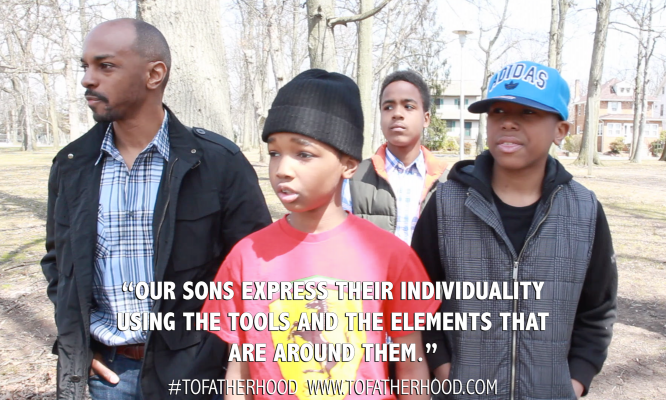
Today’s en vogue language concerning a person’s lived experiences involves the master narrative, or commonly understood ways of being. And for Black folk, Black men and boys in particular, there is a default understanding of us as being bound within an urban narrative. Certainly, mainstream music and moving images celebrate the hard-scrabbled city life that Black boys and Black men are assumed to grow up in. It is romantic to many, the idea of wrestling the cityscape to achieve against the odds. It is largely a myth, however, insomuch as the lived experiences of Black people is diverse and increasingly involves a pronounced class that lives in suburban areas.
These suburban areas, in turn, are diverse and place unique demands on the psyche of Black people. W.E.B. Du Bois historically explained the pull of Black folk having to attend to a mainstream and to a Black cultural experience. While Black identity pioneer William Cross described the behavioral adaptation to this polarity through code switching between the two realities articulated by Du Bois.
The puzzle is not a new one then, how to navigate a Black cultural experience and one that is more broadly explained as “American” without losing self in the process. The key is found in realizing that our self, our identities are both uniquely Black and typically American. Indeed – to paraphrase Langston Hughes – we, too, sing America.
CLICK HERE FOR VIDEO
And grasping this reality gives us permission, in many ways, to be more Black by filling our self with experiences that are beyond the arrested development that many assume we need to attach ourselves to. It is important for us to be in settings that are not “typically” Black or urban, because it helps to grow the understanding of what and how Black Americans are – we are more than that master narrative. Our identities are made robust by exposure.
So then, fathers have the responsibility to present more to their sons than the expectations of Black masculinity that are found in the city story. This is done carefully by qualifying suburban schooling, trips to the lake, golfing, lacrosse and that summer jaunt to Ethiopia as components of Black liberation. Though it might sound like a bit of a stretch, having Black bodies occupy these spaces pushes us into healthy living beyond the margins. Thinking and doing in this way eradicates the foolish notion of being smart and accomplished as being “white” by connecting Black identification to a world culture that is in service to Black people in urban and suburban areas alike.
No doubt, this is easier said than done. But this is living, and we have a right and responsibility to push against the sensibilities of racism that suggest we belong elsewhere than everywhere.
Contributor – David Wall Rice, Ph. D
Research Scientist and College Professor and Chair of the Psychology Department, Morehouse College.
Follow David Wall Rice on twitter @Dwallrice
